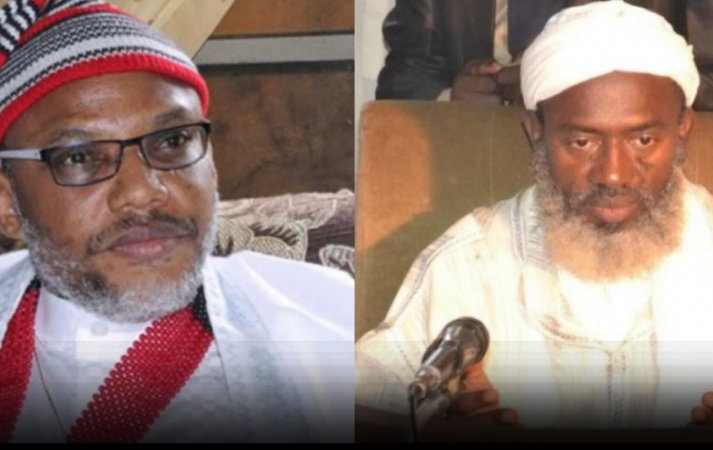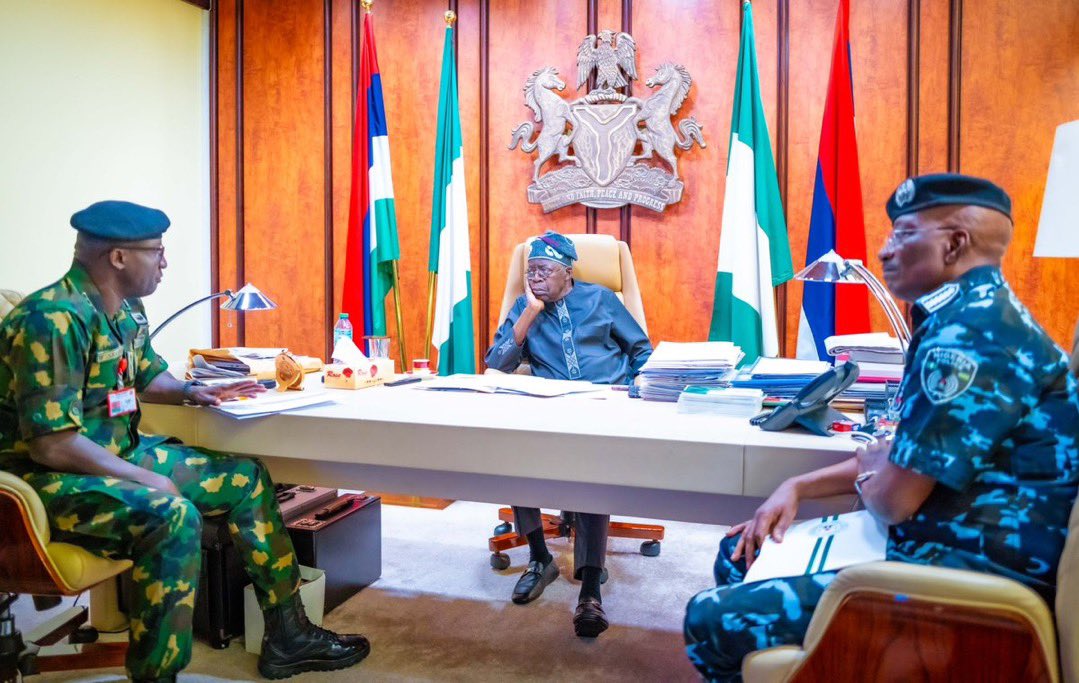

In a development that has stirred fresh conversations across Nigeria’s political and social landscape, renowned Islamic scholar Sheikh Ahmad Gumi has declared that he is willing to personally champion the push for the release of the detained leader of the Indigenous People of Biafra (IPOB), Nnamdi Kanu—but only on one condition: Kanu must show genuine remorse. Gumi made this known on Tuesday during an appearance on Channels Television’s The Morning Brief, an interview monitored by DAILY POST, where he addressed the thorny issue of national unity, insurgency, and the path to sustainable peace.
The statement comes at a tense moment, barely a week after Justice James Omotosho of the Federal High Court in Abuja sentenced Kanu to life imprisonment following his conviction on all seven terrorism-related charges. The IPOB leader, who has long been a polarizing figure in Nigeria’s political narrative, was subsequently transferred to the Sokoto Prison facility, deepening the already heated debate over whether his continued detention heals the nation or widens old wounds.
But Gumi, notorious for his outspoken and often controversial interventions on matters of national security, introduced a fresh angle to the conversation—one that places responsibility squarely on Kanu’s shoulders. “If Nnamdi Kanu, who is in prison for terrorism and for threatening to kill our soldiers, shows remorse and seeks peace, I will personally lead the campaign for his pardon and amnesty,” he said, signaling what many interpret as both an olive branch and a challenge.
The cleric’s proposition has already triggered widespread reactions. For some Nigerians, especially those tired of the recurring instability in the South-East, Gumi’s stance appears to offer a possible bridge toward reconciliation. They argue that if someone as controversial yet influential as Gumi can advocate for political solutions over endless punishment, then perhaps the government may be nudging quietly toward a negotiated peace. Others, however, see his condition as an unfair imposition, asserting that Kanu and his followers believe they have been victims of longstanding marginalization and may not see remorse as applicable in their struggle.
Still, what stands out in Gumi’s statement is not merely the offer itself but the broader context in which it was made. For years, he has been one of the most vocal figures in advocating for dialogue with bandits and insurgents, often coming under heavy criticism from Nigerians who believe such gestures embolden criminality. Yet in his Tuesday interview, he doubled down on his philosophy that Nigeria’s problems cannot be solved by force alone. He emphasized repeatedly that reconciliation, dialogue, and political concessions have stronger long-term effects than harsh punitive measures, especially in a country as ethnically and politically fragile as Nigeria.
Gumi’s framing of remorse as a requirement is also being interpreted in multiple ways. Some analysts argue that the cleric is offering Kanu a safe pathway to step back from some of the fiery rhetoric that characterized IPOB’s earlier years. They note that calls for secession have historically been met with uncompromising resistance from the federal government, yet remorse—even symbolic—could provide a face-saving opportunity for all parties involved to reset the conversation.
Others, however, read Gumi’s statement as a subtle critique of the government itself. By suggesting that he is willing to lead the campaign for amnesty if remorse is shown, he positions himself yet again as a mediator in national conflicts, a role the government has sometimes failed to institutionalize. His comments implicitly highlight the fact that Nigeria has a long history of granting amnesty to militant groups—from Niger Delta militants to repentant Boko Haram members—raising questions about what principles guide such decisions and why some groups are treated more harshly than others.
The South-East, still grappling with repeated sit-at-home orders, economic stagnation, and heightened military presence, continues to watch developments around Kanu’s detention with deep concern. Many residents argue that the region cannot fully heal until the IPOB matter is resolved politically rather than militarily. Gumi’s words, therefore, may resonate beyond television screens, potentially influencing grassroot sentiments and political discourse.
For the Nigerian government, the cleric’s statement presents both an opportunity and a dilemma. On one hand, Gumi’s influence, especially in the North, could help soften opposition to any political solution involving Kanu’s release. On the other hand, requiring remorse may complicate negotiations if Kanu chooses to maintain his defiant posture. The IPOB leader has historically insisted that he is a prisoner of conscience, not a criminal, and it remains unclear whether he would ever agree to express regret for actions he believes were justified by the cause he champions.
Even within IPOB’s base, reactions are mixed. Some see the condition as unnecessary and insulting, while others argue that a symbolic gesture of peace could significantly reduce tensions and pave the way for a meaningful national conversation about restructuring and equity. What seems certain, however, is that Gumi’s intervention has reopened a conversation many thought had reached a political dead end.
As public debate intensifies, one cannot ignore the strategy behind Gumi’s timing. With Nigeria grappling with worsening economic pressures, escalating security threats, and growing public dissatisfaction, national unity remains fragile. Any issue capable of igniting further unrest—particularly in politically sensitive regions—needs delicate handling. By offering a middle ground, even a conditional one, Gumi may be trying to nudge the country toward a broader culture of dialogue.
In the coming weeks, the federal government’s stance will be closely watched. Will officials dismiss Gumi’s comments as personal opinion, or could this be a quiet test balloon for public reaction? Will South-East leaders seize this moment to push for a more comprehensive peace deal? And perhaps the biggest question of all: will Nnamdi Kanu, now serving a life sentence, consider remorse as a strategic move toward freedom or continue his defiant stand?
For now, Gumi’s words have introduced a new tension point in the conversation—one that places the future of Kanu’s freedom not only in the hands of the courts or the government, but also in his willingness to adjust his tone. Whether this marks the beginning of a new chapter or simply another twist in Nigeria’s long-running political saga remains to be seen.

